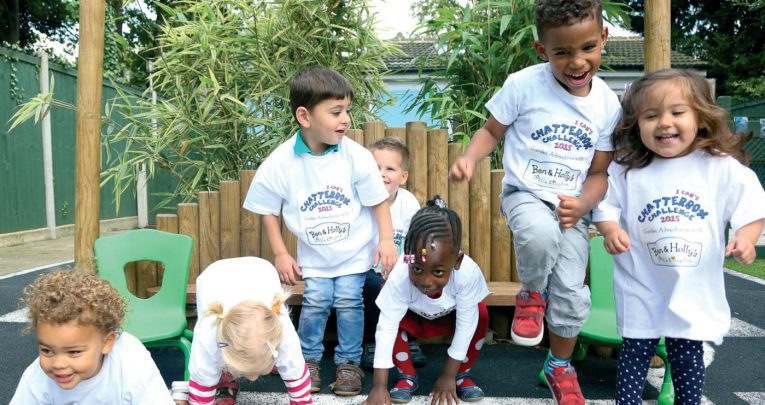Boosting Early Language Skills With New Experiences

Encouraging children to try, and enjoy, new experiences will do much to boost their language skills, says Mandy Grist…

- by Mandy Grist

Look up the word ‘adventure’ in a dictionary and you’ll find it means ‘an unusual and exciting or daring experience’.
Having an adventure, of course, can mean different things to different children. For one child it can mean trying something new at snack time, for another playing in a new area of the nursery or going on an outing. As children have different dispositions and attitudes, an adventure can have different meanings and provokes a range of responses.
The one thing all adventures have in common, though, is that they are new experiences, and as children encounter new experiences, there are a whole range of learning opportunities to take advantage of.
Planning adventures
Having adventures provides children with opportunities to develop and practise a host of language skills. The anticipation of an adventure motivates and excites children, and often stimulates a lot of talk and opportunities for you to communicate with them – as well as developing their vocabulary and broader skills. An adventure could be as simple as a treasure hunt around your setting or as complicated as a trip out to a local site of interest. Here are some ideas to try in your setting:
An adventure inside might include trying new fruit or vegetables from a different country at snack time – getting children involved in touching and tasting new things involves their sense of sight, touch and taste. They are not only learning the names of new things to eat but also learning how to describe these (crunchy, sweet) and expanding the range of adjectives they know and use. They’re also learning to make decisions about what they like and don’t like and it’s only by trying things that they can know. I love tomatoes, a friend of mine doesn’t like them but she only knows this from trying them! Think about the language and concepts children experience in their new adventure – name words and give children labels for new things they touch, see, feel and taste. Don’t forget verbs and adjectives too so that children can hear words that describe actions.
Other ways to have adventures inside include changing the layout or introducing a new feature in the nursery. This can cause excitement and engage children to see their everyday environment differently. You might decide to create a den for a cave (Going on a Bear Hunt), where there are new concepts to talk about such as light and dark. You can also get children involved in building the den, which takes planning and sequencing skills. If you’re thinking of changing the environment, ask children what they would like to do. If children are involved in planning and deciding then there are even more opportunities for them to be actively involved and learn language.
Record your adventures by filming or taking photos. You then have a visual story sequence of your adventure so that you can share stories together. Retelling a story helps children to develop essential language skills for learning.
Provide a narrative or commentary for children. If they hear you interpreting what they see or hear and modelling the words for them, they can learn by copying and hearing what you say.
Involving parents
Parents may be anxious about the idea of adventures at home – understandably, not everyone wants to do something they see as risky or messy! However, practitioners can support and encourage parents to build new experiences into everyday routines by talking to them about the benefits for their children. Share your idea with parents, help them to see that adventures can be as simple as having a treasure hunt at home or in the garden – they don’t need to go somewhere special! Remember to use parent-friendly terminology when making suggestions to them.
Try sharing what you have done in your settings. A photo book shared with parents can help children to continue an adventure at home. Encourage them to make a book too, so that their children can talk about their home adventures in nursery. Families will be able to get involved in varying degrees, so the strategies you share with parent/carers will need to be tailored.
The idea of an adventure is a different and exciting way to nurture children’s communication skills. Adventures can be rewarding and develop children’s experiences – especially as children learn best by experiencing things for themselves. Get creative and get going with your adventures!
Mandy Grist is a specialist speech and language therapist who has worked in schools and educational settings since 1996, and a communication adviser for I CAN.
Find out more
You can discover more adventure-themed activities and ways to get involved in I CAN’s annual educational sing-along, Chatterbox Challenge: Garden Adventures with Ben & Holly, at chatterboxchallenge.org.uk










